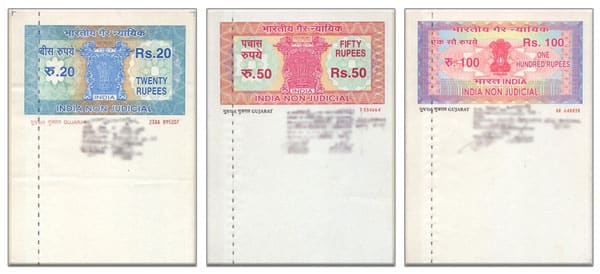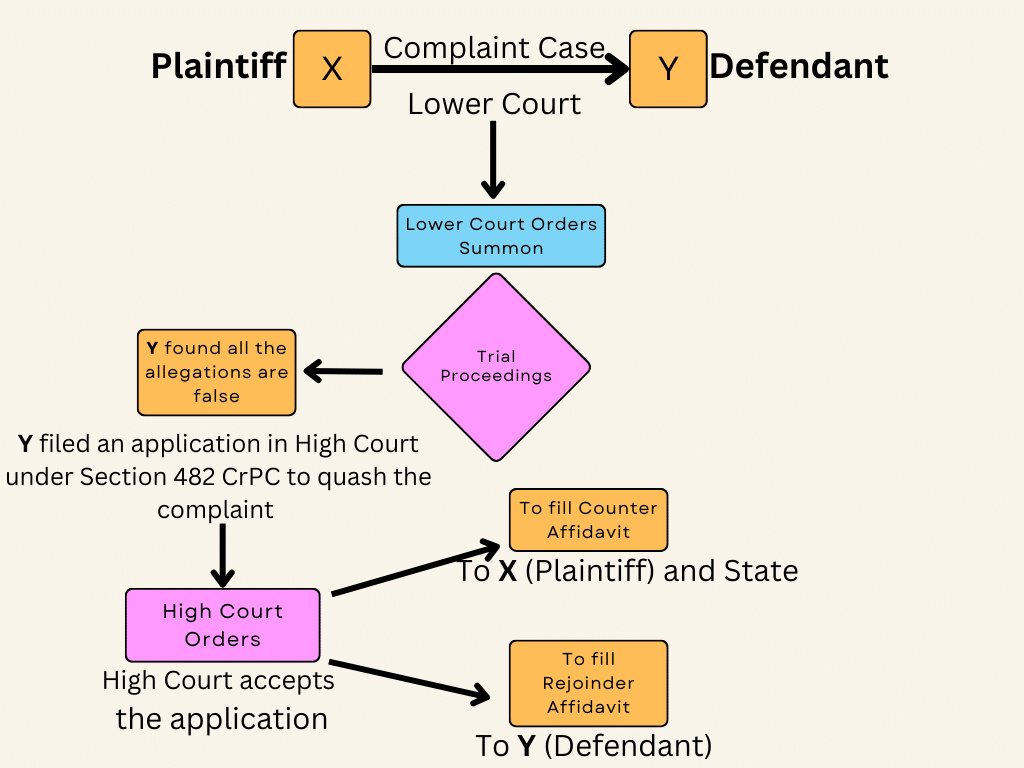An Affidavit (शपथ-पत्र) is a sworn statement or a declaration

Hallucination-resistant legal AI (context engineered)
An Affidavit (शपथ-पत्र) is a sworn statement or a declaration of a fact made by a party, in writing, under an oath or affirmation which is used either in support of the application in the court or as evidence in court proceedings.
The person making the affidavit is known as the affiant or deponent. He/She declares that the contents of the statement are true to the best of their knowledge and belief. The affiant usually signs the document and has it notarized by a notary public or an authorized official who verifies the affiant’s identity and administers the oath or affirmation.
Essentials of an affidavit
- It must be in writing.
- It needs to be a declaration by the affiant/deponent.
- The facts mentioned must be true to the best of their knowledge.
- It must be sworn under oath before an authorized officer or magistrate.
- It cannot be made on behalf of another person.
Uses of Affidavit
The affidavits are widely used in various legal, administrative, and governmental processes like,
- Legal proceedings
- Property transactions
- Passport and Visa applications
- Marriage registration
- Address verification
- Name change verification
- Etc
Types of Affidavits
There are two types of affidavits:
Judicial affidavit
Judicial affidavits are written on judicial paper and stamped with court fees. These are legally binding and used in courts. These stamp papers are also known as court fee stamp papers as they are often used to avoid cash transactions with the court. These must be attested by the oath commissioner or notary public or authorized official to be valid.
Non-Judicial affidavit
Non-judicial affidavits are written on non-judicial stamp paper that are not legally binding. These must be attested by a notary public to be valid. The attestation must be signed with his seal and a notary stamp and also entry must be made in Notarial Registration Book. The non-judicial stamp papers are used for various legal documents and transactions outside of the court.

Affidavits under various codes
The term “affidavit” has not been defined in the Code of Civil Procedure, 1908 it generally means “a sworn statement in writing made specially under oath or an affirmation before an authorized officer or magistrate.”
According to Order 19 Rule 2 of the Code of Civil Procedure, the court has the authority to order the affidavit proof of any specific fact or fact at any moment. However, if it appears to the court that either party wishes the production of a witness for cross-examination and that such a witness can be provided, the court shall not issue such an order.
Additionally, Order 19 Rule 3 states that an affidavit must only contain information that an affiant can personally attest to except on interlocutory applications on which a statement of affiants belief may be admitted.
The affidavits are considered not as ‘evidence’, according to Section 3 of the Indian Evidence Act, 1872. However, the Supreme Court in Khandesh Spg & Wvg Mills CO. Ltd. v. Rashtriya Girni Kamgar Sangh held that an affidavit can only be used as evidence if the court so orders for adequate reasons. That means when an affidavit is filed in court or at the court’s request, or when the law specifically allows for the use of affidavits as proof of anything, only then it can be used as ‘evidence’ within the meaning of Section 3 of the act.
Moreover, Order 19 and Section 139 of the Code of Civil Procedure, as well as Order 11 of the Supreme Court Rules, provide the legal requirements for affidavits. The Supreme Court in Amar Singh v. Union of India and ors, have given instructions to the court registry to carefully review all affidavits, petitions, and applications and reject those which do not follow the Orders.
Filing a False Affidavit
Any person who intentionally swears false and irrelevant statements to be true and correct in an affidavit and signs it with the intent to deceive the court is said to file a false affidavit. If such person provides false testimony at any stage of a legal proceeding or creates false testimony with intent to use at any stage of a legal proceeding, such person shall be punished with imprisonment up to seven years, and also a fine shall be levied.
If such a person provides false testimony in any other circumstances shall be punished with imprisonment up to three years and also a fine shall be levied.
Filing a false affidavit in one’s pleadings or submitting a fake and false affidavit or document in evidence before a court of law is an offence under Sections 191, 193, 195, and 199 of the Indian Penal Code, 1860.
A Criminal proceeding is initiated against the offender by filing an application under Section 340 read with Section 195 of the Code of Criminal Procedure, 1973 before a court of law for giving false testimony.
Moreover, criminal contempt of court charges may be faced, if a person files a false affidavit when a court has ordered to do so, and shall be punished with imprisonment of up to six months under Section 2(c) of the Contempt of the Courts Act, 1971.
A private complaint can be made to the Magistrate under Section 200 of the Indian Penal Code when a false affidavit or document is presented in any quasi-judicial or administrative action.
Counter Affidavit
The counter affidavit is an affidavit responding to and contradicting the affidavit produced by an adversary. In simple terms, it is an affidavit filed by one of the respondents or all, in reply to a petition. It is allowed in the preliminary examination of some cases.
Rejoinder Affidavit
The Rejoinder affidavit is the response by the petitioner to the counter affidavit filed by the respondent. In simple terms, it is a reply to the counter filed by the opposite party. It may also include facts raised through the affidavit filed by the respondent.
The pleadings of the petitioner or plaintiff are already filed and if the opposite party filed a counter affidavit or written statement with new facts which if the petitioner or plaintiff does not find true or correct, he can file a rejoinder denying the new facts which are not mentioned in the petition or complaint.




